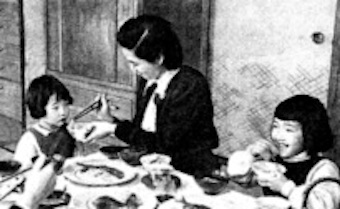Japan Real Wages Decline for a Tied Record of 23 Months: Nikkei and Poverty
Noriko Watanabe and Chika Mori
Modern Tokyo Times

The government of Prime Minister Fumio Kishida tied the record of 23 months in the decline of real wages. At the same time, the Nikkei stock market made the rich even richer inside and outside Japan.
Real wages can’t keep up with inflation. Accordingly, a drop of 1.3% in real wages in February ties the record of 23 consecutive months of gloom.
This 1.3% decline is deceptive. After all, the rise in wages for the working poor, temporary staff, and part-time workforce (in general) didn’t rise to the same level of more wealthy workers in permanent work and at major companies. Therefore, the decline for the poorest in society is higher than 1.3% and lower for workers in high-paid work.
Data on real wages wasn’t compiled until 1991. This statistic highlights the reality of Kishida’s “new capitalism.”
Lee Jay Walker says, “The poorest in society are suffering. This concerns part-time workers, the working poor, people on temporary contracts, women, and the elderly workforce in poorly paid work related to age discrimination.”
The rise of the Nikkei stock market is hitting the media headlines. Yet, it is a mirage. Instead, tens of millions of people are struggling and are worse off under Kishida.
In the United Kingdom, the minimum hourly adult rate in April 2024 will increase to 11.44 pounds (2,198 Japanese yen). In contrast, most prefectures in Japan pay less than 4.95 pounds per hour (950 yen) based on the current yen-to-pound exchange rate.
Indeed, even in Tokyo, the minimum hourly rate is a deplorable 5.80 pounds (1113 yen – current exchange rate). Of the 47 prefectures, 13 pay 900 yen or less (4.69 pounds). When you add paying 10% consumption tax every time you go shopping for food and other essential items (fruit and other foodstuffs are higher in Japan) – and paying towards health care – it highlights how poverty is a reality for many Japanese people.
Thomas Sowell famously said, “The rich can more easily convert their assets from money into things like real estate, gold, or other assets whose value rises with inflation. But a welfare mother is unlikely to be able to buy real estate or gold.”
OECD report in 2021 stipulated that average wages in Japan rank 24 out of the 35 leading nations. Indeed, wages in Japan are now 20% below the OECD average. Therefore, recent inflation and foodstuff hikes are putting further strains on people.
Pension worries in Japan and the high cost of living entail that just over 33% of people aged between 70 and 74 are still in the workforce. This figure is over 50% for people in the age bracket of 65 and 69.
Lee Jay Walker says, “Wealthy Japanese nationals and foreign investors are getting richer via the stock market and are buying real estate. In the opposite direction, a record tied 23 months of a decline in real wages. Therefore, the gap between the rich and poor is growing under Kishida.”
https://wageindicator.org/salary/minimum-wage/japan

Modern Tokyo News is part of the Modern Tokyo Times group
http://moderntokyotimes.com Modern Tokyo Times – International News and Japan News
http://sawakoart.com – Sawako Utsumi and her website – Modern Tokyo Times artist
https://moderntokyonews.com Modern Tokyo News – Tokyo News and International News
PLEASE JOIN ON TWITTER
https://twitter.com/MTT_News Modern Tokyo Times
PLEASE JOIN ON FACEBOOK